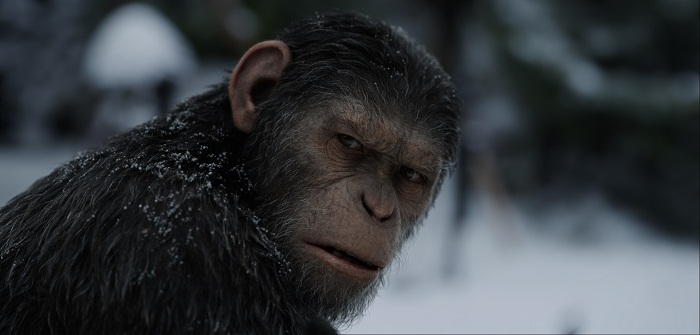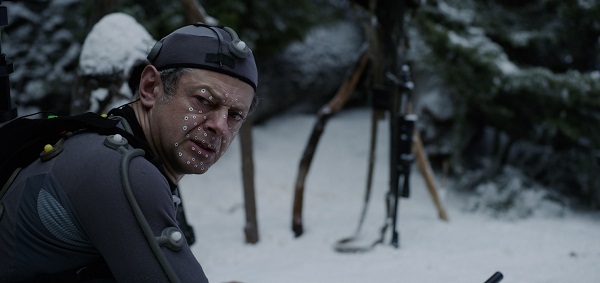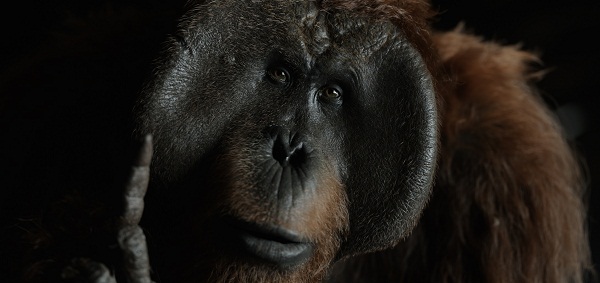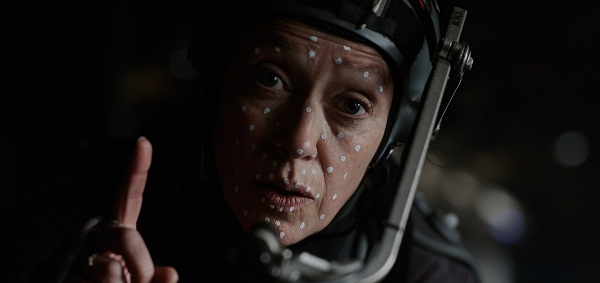Humanity’s last stand is at stake in the upcoming epic action “War for the Planet of the Apes” where peace is shattered in a winner-takes-all war for the planet. Here we see the incredible transformation of the actors in mo-cap (motion capture) technology as they bring their characters to life on the big screen.

As the war rages on in “War for the Planet of the Apes,” the third and climactic chapter of the critically acclaimed blockbuster trilogy, director Matt Reeves and an all-star cast unleash the rapidly evolving simians into a world boiling over with anger and revenge. In a flurry of mythic filmmaking, audiences will witness the pivotal moment that determines the fate of human civilization forever and be immersed in the ape leader Caesar’s emotional quest to lead his young society to a new home, even as a war between his belief in family and honor versus the lure of a vengeful reckoning churns within his soul.

Big ideas and potent storytelling combine as “War For the Planet of the Apes” pushes the series into new realms of legend-building as it explores the values that forge a civilization. It all comes to life driven by the most complex and intense performance by Andy Serkis yet as the majestic Caesar, and groundbreaking visual effects from Weta Digital. Also returning to the series is Karin Konoval as Caesar’s trusted advisor, Maurice, Terry Notary as Caesar’s right-hand man, Rocket, as well as Judy Greer as Caesar’s wife Cornelia and Toby Kebbell as Koba.
The development of leading-edge performance capture technology technology that can record even the tiniest nuances of movement, gesture and emotion to animated characters via human actors has led to the creation of some of motion pictures’ most memorable personalities, including the apes seen in Rise of the Planet of the Apes and Dawn of the Planet of the Apes.
The filmmakers once again turned to the visual effects artists at the New Zealand-based visual effects house Weta Digital. “Working with Dan Lemmon and the artists at Weta is so inspiring,” says Reeves. “They are constantly raising the bar of what is possible, and the results in this film are absolutely a high water mark in visual effects to date.”

Weta Digital has continued to evolve their capture technology over the three films to ensure no matter where the story goes, the performance of the actors onset is always recorded so the animators can see the dynamics at play. “When we shot Rise, performance capture had never before been attempted in an open environment outside a soundstage, and we were the first to shoot in the woods,” Peter Chernin recalls. “Now we’re going to mountaintops and into the snow. People don’t know how extraordinary complex it is.”

Giving Weta another new challenge, War features a dozen key ape characters, more than in the previous films, and they also are speaking with more sophistication. War marks another first for performance capture – the first time it has been used in extreme weather, including falling snow. Lemmon explains the daunting task: “We had to take a process already considered very sensitive and carefully calibrate it into areas with sub-freezing temperatures and snow flurries. It’s exciting, because we’ve opened up the possibility that you can use performance capture anywhere, interacting with any environment and still have full confidence that you’ve captured every nuance an actor is bringing.”
“War for the Planet of the Apes” opens July 12 in cinemas nationwide from 20th Century Fox to be distributed by Warner Bros.


2 Comments
I really like and appreciate your post. Want more.
Im grateful for the blog article.Really looking forward to read more. Awesome.